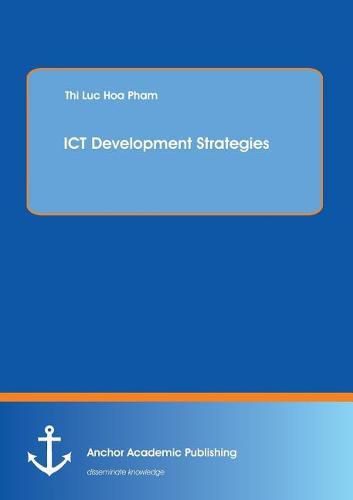Readings Newsletter
Become a Readings Member to make your shopping experience even easier.
Sign in or sign up for free!
You’re not far away from qualifying for FREE standard shipping within Australia
You’ve qualified for FREE standard shipping within Australia
The cart is loading…






This title is printed to order. This book may have been self-published. If so, we cannot guarantee the quality of the content. In the main most books will have gone through the editing process however some may not. We therefore suggest that you be aware of this before ordering this book. If in doubt check either the author or publisher’s details as we are unable to accept any returns unless they are faulty. Please contact us if you have any questions.
After a decade, internet now reaches the Asian region as well as African countries intensively while USA, Canada and Europe are focusing newer inventions. Within the Asian region it exists considerably another technological gap among countries. The countries with higher income such as Japan, Singapore, South Korea has succeeded in implementing ICT in all social and economic areas. The rest of the countries, including China, Malaysia, Thailand, Indonesia, Philippines, Vietnam, Laos, Cambodia, are far behind in information technology. Nevertheless, its necessary for all nations, weather developed or developing, to keep on nurturing ICT development to be a part of connected world. The question is how a nation can successfully adopt ICT and benefit from all advantages at best. Unfortunately, there is no common guideline for all countries. Without identifying specific factors of each country and a lot of effort made by government, no country can achieve high ICT performance in the long run. The purpose of this paper is three-fold: To identify the characteristics and political options of a country, that would affect the success of ist ICT adoption. To identify clusters of nations upon the international ICT indices and GNI per capita To provide an overall guideline that incorporates these nations toward developing higher ICT indices. This paper shows income level and social background can play very important roles in countrys ICT development.
$9.00 standard shipping within Australia
FREE standard shipping within Australia for orders over $100.00
Express & International shipping calculated at checkout
This title is printed to order. This book may have been self-published. If so, we cannot guarantee the quality of the content. In the main most books will have gone through the editing process however some may not. We therefore suggest that you be aware of this before ordering this book. If in doubt check either the author or publisher’s details as we are unable to accept any returns unless they are faulty. Please contact us if you have any questions.
After a decade, internet now reaches the Asian region as well as African countries intensively while USA, Canada and Europe are focusing newer inventions. Within the Asian region it exists considerably another technological gap among countries. The countries with higher income such as Japan, Singapore, South Korea has succeeded in implementing ICT in all social and economic areas. The rest of the countries, including China, Malaysia, Thailand, Indonesia, Philippines, Vietnam, Laos, Cambodia, are far behind in information technology. Nevertheless, its necessary for all nations, weather developed or developing, to keep on nurturing ICT development to be a part of connected world. The question is how a nation can successfully adopt ICT and benefit from all advantages at best. Unfortunately, there is no common guideline for all countries. Without identifying specific factors of each country and a lot of effort made by government, no country can achieve high ICT performance in the long run. The purpose of this paper is three-fold: To identify the characteristics and political options of a country, that would affect the success of ist ICT adoption. To identify clusters of nations upon the international ICT indices and GNI per capita To provide an overall guideline that incorporates these nations toward developing higher ICT indices. This paper shows income level and social background can play very important roles in countrys ICT development.